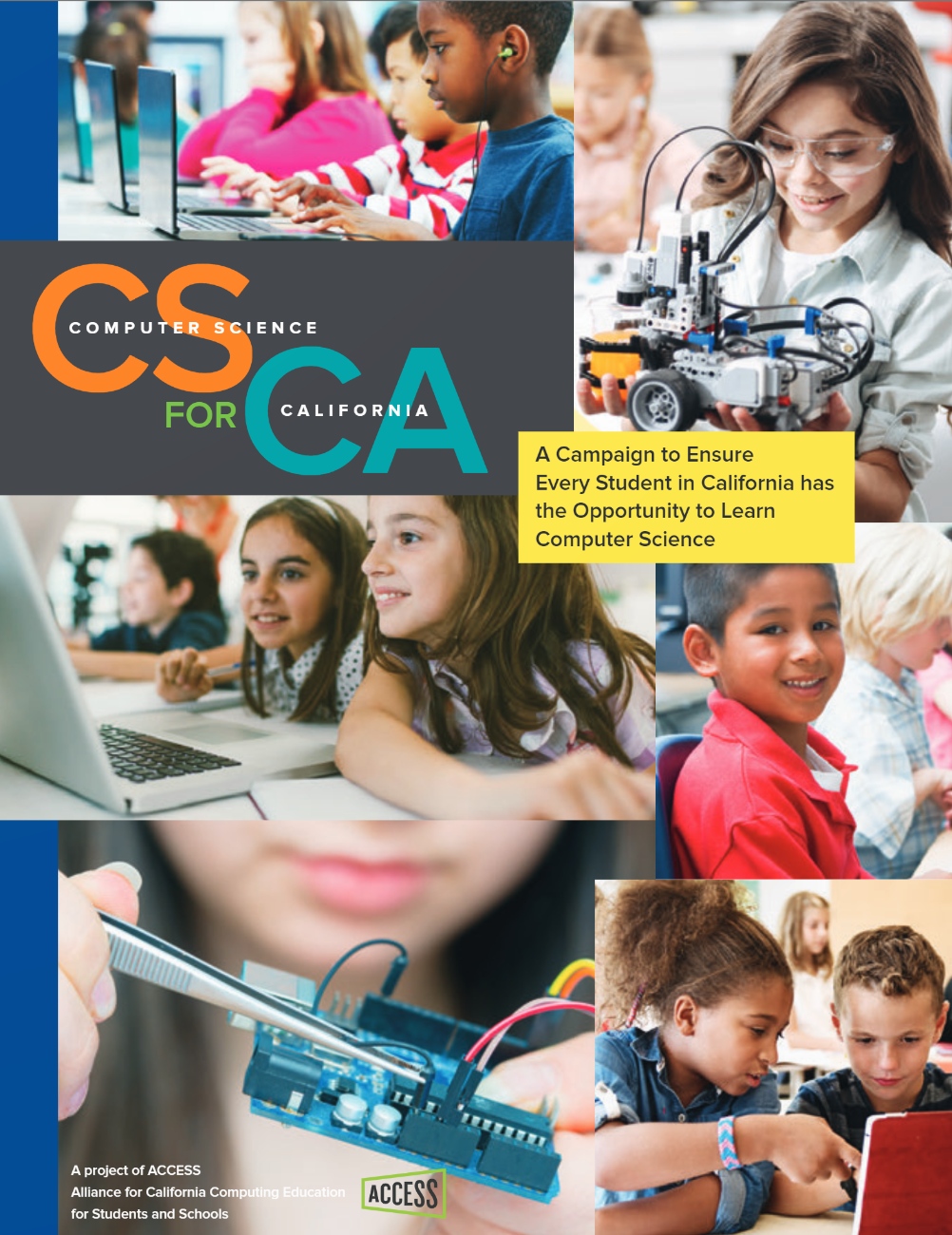 Welcome to the Computer Science (CS) page of the Educational Services Division. With the recent adoption of California K-12 Computer Science Standards, OCDE is here to serve as a resource to support districts and schools throughout Orange County in implementing Computer Science. Whether through integration into existing content, or as a stand alone subject, there are a literal plethora of throughpoints. From beginning with coding blocks in Hour of Code, to engaging in Physical Computing, to having students participate in Regional Programming, and robotics competitions, access to Computer Science programming is represented in districts and schools throughout Orange County. In fact, the adoption of California's K12 CS Standards creates an opportunity for all students to benefit from high quality CS instruction to help ensure they cultivate the skills necessary for success in college and career.
Why Computer Science?
| Computer science (CS) education is foundational learning for the future of California.
CS provides students the skills of problem solving, critical thinking, creativity, and collaboration needed to succeed in the 21st century. In order to become active members of modern society, students need to learn to become creators of technology, not just passive consumers. CS helps prepare students for college, careers, and community engagement. Increased access to CS can allow students to discover innovative ways to solve problems in their communities and to learn about college majors or careers they might never thought were possible. | What is Computer Science?
| According to the National Science Foundation, computer science is the study of computers and algorithmic processes and includes the study of computing principles and theories, computational thinking, computer hardware, software design, coding, analytics, and computer applications. CS often includes computer programming or coding as a tool to create software, including applications, games, websites, and tools to manage or manipulate data; or development and management of computer hardware and the other electronics related to sharing, securing, and using digital information. In addition to coding, the expanding field of CS emphasizes computational thinking and interdisciplinary problem-solving to equip students with the skills and abilities necessary to apply computation in our digital world. | How is it different from coding, educational technology, digital literacy, and computational thinking? Are they all the same thing?
| Coding is one tool in the CS toolbox, but CS teaches more than just how to code. CS is about solving problems using computers. Coding (or programming) is using a language in order to carry out these solutions.
Educational technology refers to the use of technology in the learning process. These are often the tools teachers use to deliver a lesson (edx.org).
Digital literacy is the ability to use information and communication technologies (including word processors, spreadsheets, video editing, or presentation software) to find, evaluate, create, and communicate information (ala.org). Computational thinking refers to the thought processes involved in understanding problems and their solutions in such a way that the solutions can be efectively carried out by a computer (NSF). Computational thinking is a skill that is developed in CS, along with programming, communication, and creativity. Computational thinking is applied in all types of learning, such as math and science courses and it is even established as one of the Science and Engineering Practices in the Next Generation Science Standards.
| Why is it important to focus on equity in Computer Science?
| There are current racial and gender disparities that limit students’ full access to computer science education. CS has the potential to empower humans and its efect on communities. Special attention must be paid to provide access to all students, especially those who have been historically underrepresented in CS, including African Americans, Latinx, Native Americans, Pacific Islanders, women, English language learners, LGBTQIA, and students with special needs. Not only does CS open the door to some of the highest paying and fastest growing jobs in America, but it can also help prepare students for college. Additionally, part of developing a well-informed citizenry is understanding and demystifying computing technology and being able to think critically of its potential and impacts. |
Thank you for visiting the Educational Services Division Computer Science webpage. Please see standards, resource links, as well as opportunities for professional learning. Should you have any questions, or need any information, please contact:
Zachary Pettitt
STEM Coordinator
Educational Services
|
